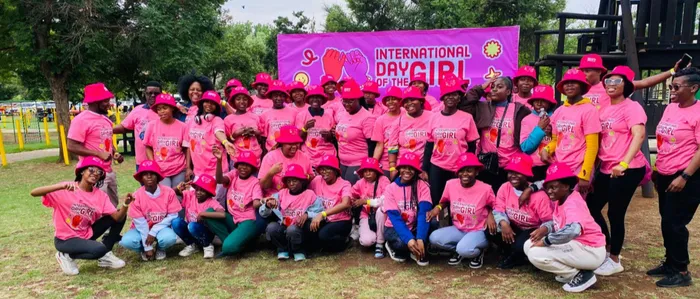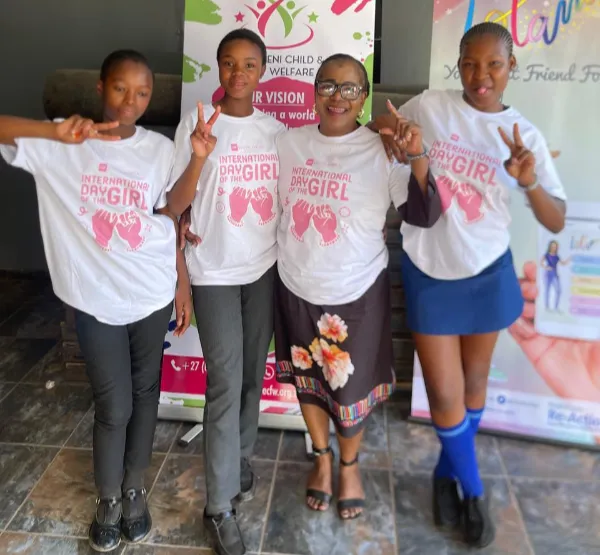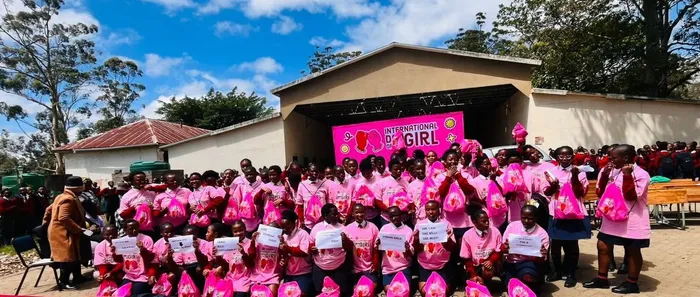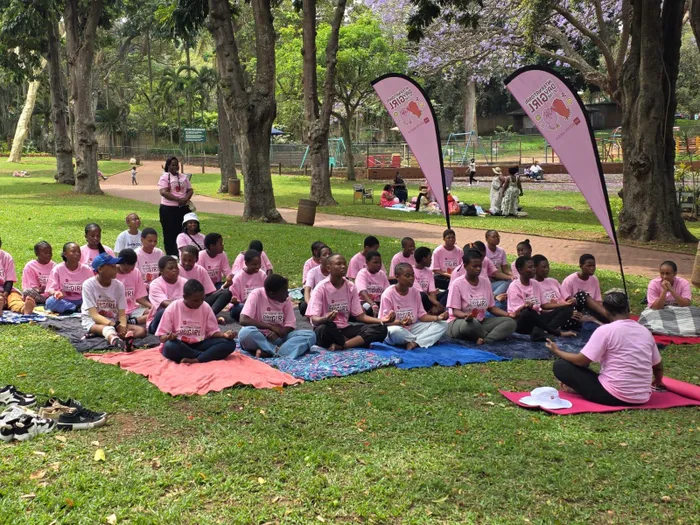AIDS Healthcare Foundation hosts community events across four provinces for International Day of the Girl

Girls join a 5km hike and fireside chats at Rietvlei Farm Zoo in Gauteng during AHF South Africa’s International Day of the Girl celebration.
Image: Supplied
AIDS Healthcare Foundation (AHF) South Africa joined the global celebration of International Day of the Girl this October with a series of community events across four provinces.
International Day of the Girl, commemorated annually on October 11, focuses on promoting girls’ rights and addressing challenges they face. AHF South Africa joined other AHF programmes worldwide to help protect girls from HIV, celebrate their accomplishments, amplify their voices, and advocate for policies that safeguard girls’ health and futures.

Girls from Emalahleni take part in AHF South Africa’s International Day of the Girl celebration at the LoveLife Youth Centre, where discussions focused on health, education and empowerment.
Image: Supplied
Despite progress, adolescent girls and young women continue to shoulder a disproportionate share of global health inequities, particularly when it comes to HIV. Every week, 4,000 young women aged 15 to 24 become newly infected with HIV, more than 3,300 of them in sub-Saharan Africa. In 2023, 1.9 million adolescent girls and young women were living with HIV, compared to 1.2 million boys and young men of the same age.
South Africa marked International Day of the Girl with four community events in October:

Girls at Willowvale Secondary School, Eastern Cape, participate in discussions on unplanned pregnancy and HIV prevention.
Image: Supplied
Mpumalanga (Emalahleni LoveLife Youth Centre, Kwa-Guqa, Emalahleni): 50 girls from schools and youth organisations created “My Dreams, My Future” vision boards to reinforce education, health, and personal growth in line with Girls Act values. Partners included the Department of Health, Department of Education, Hope of Glory, Civil Society, Department of Social Development, and Lovelife.
Eastern Cape ( Willowvale Secondary School): 60 girls engaged on unplanned pregnancy and HIV prevention, with teen mothers sharing stories in a multidisciplinary session addressing information gaps in rural and remote areas. Partners included Bumb’ingomso and the Department of Education.
KwaZulu-Natal (Mitchell Park, Morningside): A sip-and-paint picnic with 40 girls created a space to discuss sexual and reproductive health, youth-friendly clinics, and mental health. Partners included Health Systems Trust, CCP, CPV youth ambassadors, and Youth Advocate.
Gauteng (Rietvlei Farm Zoo): 50 girls joined a 5km hike to encourage positive health-seeking behaviour, sisterhood and mental health, followed by bracelet-making and fireside chats on SRH access and advocacy. Partners included the Department of Health, CPV, and Diepsloot Youth in Action.

Adolescent girls take part in a sip-and-paint picnic at Mitchell Park in Morningside, Durban.
Image: Supplied
“Across four provinces, we created practical, safe spaces for girls to talk about their health, build confidence, and stay in school. This included everything from vision boards and a sip-and-paint picnic to a 5km hike and fireside chats,” said Dr Nombuso Madonsela, country programme director, AHF South Africa. “The Girls Act is public health equips young women with knowledge, supportive peers, and links to youth-friendly services so they can prevent HIV, access care when needed, and protect their futures.”
Globally, systemic barriers continue to affect girls’ access to health and education:
133 million girls remain out of school, cutting off pathways to future independence.
Among adolescent girls aged 15 -19 who have been in a relationship, nearly 19 million globally, about one in four experienced intimate partner violence.
Each year, 12 million girls are married before age 18, putting their safety and health at risk, including increased vulnerability to HIV.
Period poverty affects 500 million people who menstruate, limiting access to products, private toilets, and hygiene facilities.
AHF continues to address these challenges through its Girls Act programme, active in nearly 40 countries. Girls Act equips girls and young women with knowledge, resources, and peer support to stay free from HIV and other STIs, access and adhere to HIV treatment, remain in school, and prevent unplanned pregnancies.
Related Topics: